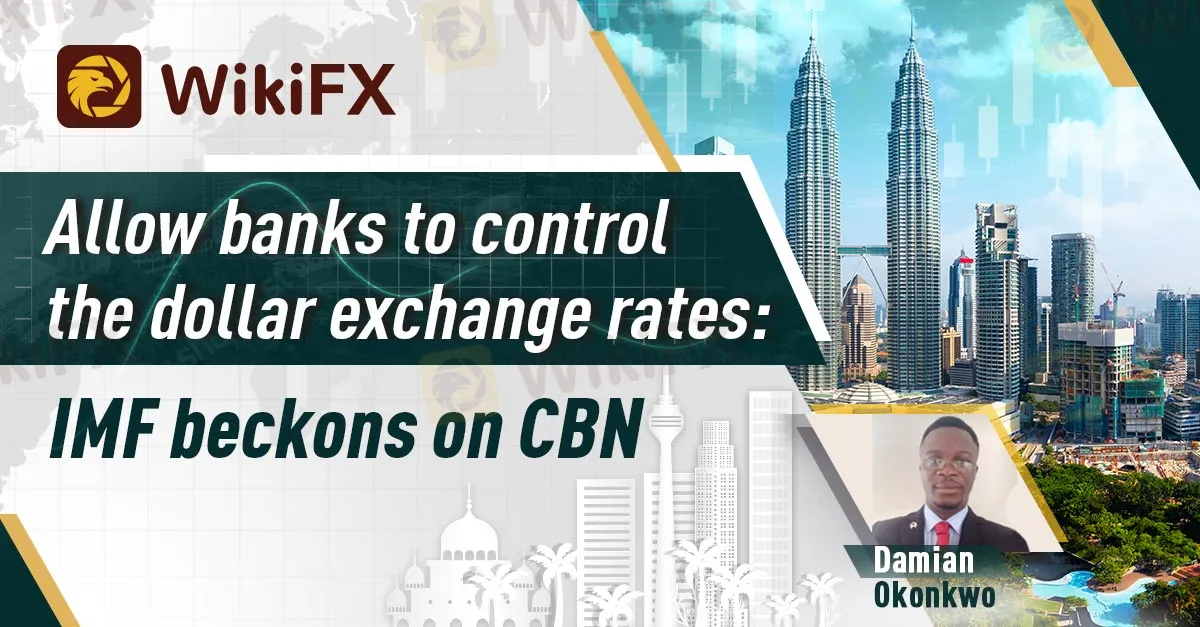简体中文
繁體中文
English
Pусский
日本語
ภาษาไทย
Tiếng Việt
Bahasa Indonesia
Español
हिन्दी
Filippiiniläinen
Français
Deutsch
Português
Türkçe
한국어
العربية
Allow banks to control the dollar exchange rates: IMF beckons on CBN
Abstract:The International Monetary Fund (IMF) has called on the Central Bank of Nigeria (CBN) to re-examine its foreign exchange (FX) management policy which allowed the apex banks to control the dollar exchange rates within the country. They considered this as limiting the market volatility by preventing the commercial banks to freely determine Fx buy-sell rates in the I&E windows.

By: Damian Okonkwo

The International Monetary Fund (IMF) has called on the Central Bank of Nigeria (CBN) to re-examine its foreign exchange (FX) management policy which allowed the apex banks to control the dollar exchange rates within the country. This had left the commercial banks sourcing to obtain dollars for their clients.
Addressing the present FX crisis in Nigeria in its 2022 Article IV Consultation presented during its official visit to the country, the IMF called on the CBN to allow the commercial banks to control the dollar exchange rates including the buy-sell prices as this will help reduce the dollar scarcity and improve the FX supply in the market. According to the IMF:
“In the medium term, the CBN should step back from its role as main forex intermediator, limiting interventions to smoothing market volatility and allowing banks to freely determine forex buy-sell rates.”
Thus, the IMF believed that allowing commercial banks to control the exchange rate will further increase the FX inflow into the country.
Speaking further on this, the IMF explained that the banks maintaining a uniform and market-clearing FX exchange rate is very necessary for boosting foreign investors' confidence in the economy.
Nonetheless, IMF stated that the continued present FX shortage, and practice of maintaining a stable exchange rate by the CBN amidst a weak Naira due to high inflation and limited debt servicing policies will all the more trigger fears of more future devaluation for the Naira amongst investors.
Describing this, the IMF stated that “These factors hinder much-needed capital inflows, encourage outflows, and constrain private sector investment.”
Above all, the body advised the Nigerian government to consider reducing its tax rate to fair levels at par with the standards of the Economic Community of West African States (ECOWAS).

Disclaimer:
The views in this article only represent the author's personal views, and do not constitute investment advice on this platform. This platform does not guarantee the accuracy, completeness and timeliness of the information in the article, and will not be liable for any loss caused by the use of or reliance on the information in the article.
Read more

The Impact of Interest Rate Decisions on the Forex Market
Interest rate changes determine currency attractiveness, influencing capital flows and exchange rate trends. Understanding this mechanism helps investors navigate the forex market effectively.

How a Housewife Lost RM288,235 in a Facebook Investment Scam
A 47-year-old housewife in Malaysia recently fell victim to an online investment scam, losing a substantial sum of RM288,235 after engaging with a fraudulent scheme advertised on Facebook.

Interactive Brokers Launches Forecast Contracts in Canada for Market Predictions
Interactive Brokers introduces Forecast Contracts in Canada, enabling investors to trade on economic, political, and climate outcomes. Manage risk with ease.

Bank Negara Malaysia Flags 12 New Companies for Unauthorised Activity
Bank Negara Malaysia (BNM) has updated its Financial Consumer Alert List (FCA List) by adding 12 more entities, reinforcing its efforts to warn the public against unregulated financial schemes. Check if your broker made the list!
WikiFX Broker
Latest News
The Withdrawal Trap: How Scam Brokers Lure Victims into Paying More
FCA to Investors: Think Twice Before Trusting These Brokers
Trump\s tariffs: How could they affect the UK and your money
Trump gambles it all on global tariffs he\s wanted for decades
TradingView Brings Live Market Charts to Telegram Users with New Mini App
Trump tariffs: How will India navigate a world on the brink of a trade war?
Interactive Brokers Launches Forecast Contracts in Canada for Market Predictions
Authorities Alert: MAS Impersonation Scam Hits Singapore
IG Group Acquires Freetrade for £160M to Expand UK Investment Market
U.S. March ISM Manufacturing PMI Released
Currency Calculator







